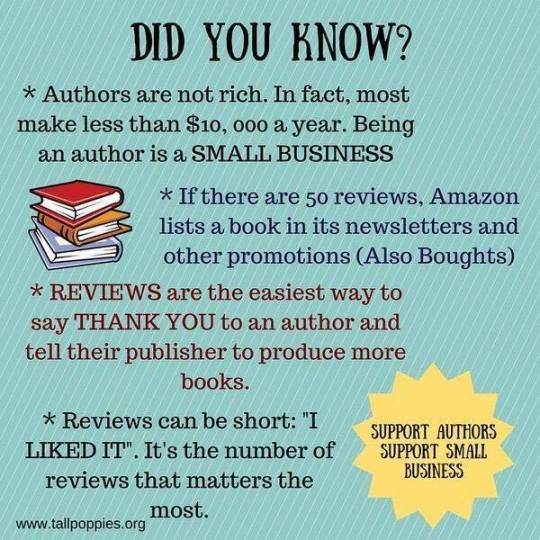Fantasy Author https://campsite.bio/marilenelouiseblom
Don't wanna be here? Send us removal request.
Text
vampirism poses the question "what if there was a fundamental, horrible, unending well of want in your soul that, if truly satisfied, would lead to great pain for all those you hold closest and, in turn, their absolute and total revilement of you?" and naturally as a person with no problems I don't relate to this in any way at all.
97K notes
·
View notes
Text
just a heads up to my fellow writers out there that AO3 is currently fighting off bots commenting on people’s works to tell them that AO3 will delete their fics “due to the works being deprecated”, and the deletion will affect their accounts unless the authors delete the fics themselves first. IT IS A SCAM. AO3 will NOT delete your works. please do NOT fall for these bots!
I’ve been told the reason why these bots are doing this is due to copyright infringement issue where they’re trying to steal your works (possibly to train AI but this is just a guess) ‼️‼️‼️and once you deleted your fics, it will be either very difficult or impossible for you to claim ownership of your own fics when they were already deleted.‼️‼️‼️
a reminder that AO3 will never contact you through your comments section (in case they claim to be one of the moderators). AO3 will only contact you through your email address which you use to register your account, and it will be from AO3’s official handle. not some sketchy ass @
so if you get a comment telling you you should “delete your works to protect your account because AO3 is doing blah blah blah” report that comment. don’t delete your works.
PLEASE DO NOT FALL FOR THESE SCAM.
AO3 IS NOT DELETING WORKS.
DO NOT DELETE YOUR WORKS JUST BECAUSE SOMEONE CLAIMS THEY KNOW SOMETHING.
21K notes
·
View notes
Text
You can fight AI in indie publishing by leaving reviews.
Seriously.
Ai-generated garbage is flooding the self-publishing market. It works as a numbers game- put out ENOUGH fake crap and eventually someone’s aunt will buy them the ebook as an unwanted gift, and you’ll have made two dollars. This tactic works at SCALE, which means real independent titles are now a needle amongst a haystack of slop.
If you have read a book this year that has less than 5 reviews, your rating is an algorithmic spotlight on that needle.
A one sentence review helps. Really. A star rating helps if you really can’t think of anything to say, but if you can muster up even ���I laughed at the part about the tabby cat” you are doing indie authors a favor like you cannot believe.
(Also if you left a review on one of my books this year I am kissing you so softly on your forehead and I adore you)
31K notes
·
View notes
Text
My book is also on here. I am a one-person publisher with one book out. This is devastating.
I can't believe I have to say this again
Look. I've posted about how piracy fucks the little guys at least twice already, but guys, seriously, I'm being so fucking real with you, PIRACY FUCKS THE LITTLE GUY.
And this is just another shining example of how.
8 of my titles are on this list. 8 of my titles that I spent months writing, editing, revising, crying over, screaming over, plotting, putting my heart into have been pirated, and then used to train some soulless AI that will then go on to make money for a big corporation, without my consent.
And I'm on the lower end. Other authors literally have over 100 works on this list. New authors just getting into this have their debut books on this list.
I repeat, this was done without our consent. This was done because someone pirated our book, and made it available to the general public for free.
So when I beg you to please not pirate books. When I tell you that it's literally ripping the potential to make our art our livelihood from our hands. When I say that every author would 100% rather you come to us and ask us about where to find our books outside of pirate sites, or even to see if we have any ARCs available if you can't afford it. . .
I do so because in the end the only one you're hurting is artists who are just like you. Just trying to put food on the table. Working long hours. Giving up weekends. Putting everything they've got into their work. And all we're asking for is that you not pirate our books, so that we can pay our bills.
We do this thing because we love it, but there's no reason that doing something we love that provides entertainment for others shouldn't make us enough to live off of. If you don't believe that, I'm afraid you've fallen for the brainwashing bullshit that some jobs "just aren't worth anything". And that, my dears, is a larger problem than I have the ability to express.
Everyone should make a fair wage from drive thru workers to writers.
Everyone should be able to pay their bills.
Don't pirate shit.
Thank you, goodnight.
797 notes
·
View notes
Text
a chapterbook: *came with a stitched in ribbon bookmark, had a cloth spine, had those rough edged finished pages, or came with a map*
8 year old me: i am a 500 year old librarian and this is the most valuable book in my collection. i rescued it myself from a castle as it burned to the ground. *gingerly runs my little grubby hands down its spine and gazes wistfully out of the school bus window* i am the keeper of all civilization’s knowledge
201K notes
·
View notes
Text

I made a quiz! :D
@feline17ff @leespinoodle @taking-a-raincheck @itsmyturnonthegender @itsonlypolite @cattokuma @chaoticgoodandi @thisnameisjustforshorttime ...and anyone else who wants to join.
(Inspiration for this from @trickstersaint's awesome quizzes)
331 notes
·
View notes
Text
YALL. Holly Black has a list of resources she's used for writing her books on the fair folk. I'm OBSESSED. I love her work and world building. it's so true to the heart of faeries
19K notes
·
View notes
Text
My not-so-hot writing take for this fine middle of the night: prologues are virtually never necessary, and Origin Of The World prologues are even more virtually never necessary.
And if you are going to write one, it should be very short and damn good.
1K notes
·
View notes
Note
yo, are you afrikaans? Saw a post lol. I'm afrikaans too
Hi, yes I am indeed! Or should I say, "Ja, ek is."
6 notes
·
View notes
Text
Useful writing reference
i dont consider myself a 'fashion guru' by any means but one thing i will say is guys you dont need to know the specific brand an item you like is - you need to know what the item is called. very rarely does a brand matter, but knowing that pair of pants is called 'cargo' vs 'boot cut' or the names of dress styles is going to help you find clothes you like WAAAYYYY faster than brand shopping
181K notes
·
View notes
Text
In Afrikaans, we literally say "né"...holy shit, language is cool
the japanese “-ne?” particle and the british slang term “innit” serve the same function
195K notes
·
View notes
Text
10 Non-Lethal Injuries to Add Pain to Your Writing
While lethal injuries often take center stage, non-lethal injuries can create lasting effects on characters, shaping their journeys in unique ways. If you need a simple way to make your characters feel pain during a scene, here are some ideas:
Sprained Ankle
A common injury that can severely limit mobility, forcing characters to adapt their plans and experience frustration as they navigate their environment.
Rib Contusion
A painful bruise on the ribs can make breathing difficult and create tension, especially during action scenes, where every breath becomes a reminder of vulnerability.
Concussion
This brain injury can lead to confusion, dizziness, and mood swings, affecting a character’s judgment and creating a sense of unpredictability in their actions.
Fractured Finger
A broken finger can complicate tasks that require fine motor skills, causing frustration and emphasizing a character’s dependence on their hands.
Road Rash
The raw, painful skin resulting from a fall can symbolize struggle and endurance, highlighting a character's resilience in the face of physical hardship.
Shoulder Dislocation
This injury can be excruciating and often leads to an inability to use one arm, forcing characters to confront their limitations while adding urgency to their situation.
Deep Laceration
A cut that requires stitches can evoke visceral imagery and tension, especially if the character has to navigate their surroundings while in pain.
Burns
Whether from fire, chemicals, or hot surfaces, burns can cause intense suffering and lingering trauma, serving as a physical reminder of a character’s past mistakes or battles.
Pulled Muscle
This can create ongoing pain and restrict movement, providing an opportunity for characters to experience frustration or the need to lean on others for support.
Tendonitis
Inflammation of a tendon can cause chronic pain and limit a character's ability to perform tasks they usually take for granted, highlighting their struggle to adapt and overcome.
Looking For More Writing Tips And Tricks?
Check out the rest of Quillology with Haya; a blog dedicated to writing and publishing tips for authors! Instagram Tiktok
63K notes
·
View notes
Text
no words can describe how much i love Kaos.
it's the most accurate adaptation of greek myths i've ever seen (and yes, i believe it's better than percy jackson even if it has my whole heart).
as an autistic person with a greek mythology special interest, i am obsessing over the care for the details they put
SPOILERS FOR EVERYONE WHO HASN'T SEEN IT
example: Pasiphae, Ariadne's mother, was in the myths the mother of the Minotaur because, to say it very poorly, she fucked a sacred cow. So Ariadne's brother was the Minotaur. And she also had a brother named Glaucus (i have to research if they're twins or not)
another example? i have plenty of those
Caeneus being trans, the whole Troy thing (which i adored because i think it's both heartbreaking and a smart as fuck way to tell the myth), the Seven Trojans in the maze, Orpheus being a singer and convincing Persephone to let Eurydice go because "she likes his songs", the scene in the last episode where outside the underworld Eurydice begs Orpheus to look at her, Hades and his wife being the only ones with fucking logical thinking in their whole family, even the fact that everyone is gay it's somehow myth accurate
the only thing that i really don't like is the fact that they made Hera cheat on Zeus, she's the goddess of marriage and because of that she has never and would never cheat on her husband, even if she clearly doesn't like Zeus (still, i loved the way she behaved, "you're the king but i am the queen" was PERFECT to me)
so yeah basically go watch Kaos because it's neat and i love it and greek mythology and yeah
567 notes
·
View notes
Text
120 ULTIMATE LIST OF CHARACTER FLAWS. Writers save this!
1. Moral Flexibility - Adapts their ethics to fit the situation, often justifying questionable actions as necessary.
2. Cognitive Dissonance - Holds two conflicting beliefs or values and struggles to reconcile them, leading to inner turmoil.
3. Overempathy - Feels others’ emotions too intensely, leading to burnout or an inability to make objective decisions.
4. Intellectual Arrogance - Dismisses others’ ideas as inferior, believing their own intellect is superior.
5. Chronic Overthinking - Analyzes situations to the point of paralysis, unable to take decisive action.
6. Restless Wanderlust - Has a constant desire for change or travel, leading to instability in relationships or careers.
7. Savior Complex - Feels compelled to “save” others, often to the detriment of their own well-being or others’ autonomy.
8. Emotional Vampirism - Drains others emotionally, needing constant validation or attention.
9. Righteous Indignation - Becomes excessively angry over perceived injustices, often alienating others.
10. Altruistic Self-Destruction - Sacrifices themselves for others to an unhealthy degree, often leading to self-neglect.
11. Pathological Modesty - Downplays their own achievements to the point of self-sabotage or invisibility.
12. Incapable of Solitude - Feels an intense fear of being alone, leading to codependent or unhealthy relationships.
13. Over-Rationalization - Justifies every action or decision, even when it’s clearly flawed, to avoid guilt or responsibility.
14. Constant Self-Sabotage - Subconsciously undermines their own success due to deep-seated fears or insecurities.
15. Misplaced Loyalty - Stays loyal to people or causes even when it’s harmful or undeserved.
16. Ethical Rigidity - Follows their moral code to the letter, unable to adapt to complex or gray situations.
17. Need for Obscurity - Prefers to stay unnoticed or in the background, avoiding recognition or responsibility.
18. Involuntary Aloofness - Appears distant or disinterested, often without meaning to, leading to misunderstandings.
19. Fear of Mediocrity - Terrified of being ordinary, they constantly strive for greatness, often leading to burnout.
20. Rejection Sensitivity - Overreacts to criticism or perceived slights, often withdrawing or lashing out.
21. Conflict Avoidance - Avoids confrontation at all costs, leading to unresolved issues and resentment.
22. Over-idealization of Others - Puts people on pedestals, only to be deeply disappointed when they don’t meet expectations.
23. Chronically Unfulfilled - No matter what they achieve, they always feel something is missing, leading to constant searching.
24. Compulsive Truth-Telling - Feels compelled to speak the truth, even when it would be kinder or wiser to remain silent.
25. Overactive Imagination - Sees threats or possibilities where there are none, leading to anxiety or missed opportunities.
26. Faux Humility - Pretends to be humble but secretly craves admiration or validation.
27. Micromanagement - Needs to control every detail, often suffocating others or hindering their own progress.
28. Anachronistic Thinking - Clings to outdated beliefs or practices, struggling to adapt to modern realities.
29. Over-Reliance on Routine - Becomes anxious or lost without their routines, struggling to adapt to change.
30. Selective Memory - Remembers events in a way that suits their narrative, often distorting the truth.
31. Paradoxical Fear of Success - Desires success but subconsciously fears the changes or responsibilities it might bring.
32. Compassion Fatigue - Once empathetic, now numbed or indifferent due to overwhelming exposure to others’ suffering.
33. Overwhelming Nostalgia - Lives in the past, unable to move forward or appreciate the present.
34. Unyielding Perfectionism - So focused on flawlessness that they struggle to complete tasks or accept anything less than perfect.
35. Epistemic Arrogance - Believes they know everything worth knowing, dismissing the possibility of learning from others.
36. Excessive Hedonism - Pursues pleasure to the point of neglecting responsibilities or moral considerations.
37. Over-Cautiousness - So afraid of making mistakes that they rarely take action, leading to missed opportunities.
38. Idealistic Naivety - Believes the world should operate according to their ideals, often clashing with reality.
39. Ambition without Direction - Desires greatness but has no clear path or plan, leading to frustration and failure.
40. Emotional Transference - Projects unresolved emotions onto others, often misinterpreting their intentions or actions.
41. Overdependence on Routine - Becomes anxious or lost without their routines, struggling to adapt to change.
42. Misplaced Guilt - Feels responsible for things outside of their control, leading to unnecessary self-blame.
43. Fear of Being Ordinary - Constantly strives to stand out, often at the expense of authenticity or well-being.
44. Chronic Indecisiveness - Struggles to make even simple decisions, constantly second-guessing themselves.
45. Faux Cynicism - Pretends to be jaded or cynical as a defense mechanism, while secretly caring deeply.
46. Romanticization of Suffering - Believes that suffering is noble or meaningful, often rejecting happiness or comfort.
47. Selective Compassion - Empathetic towards some but completely indifferent or cold to others, often based on biases.
48. Avoidant Optimism - Avoids negative thoughts or situations, clinging to an unrealistic positivity that ignores real problems.
49. Fear of Abandonment - Clings to relationships out of fear of being left alone, often leading to unhealthy dynamics.
50. Overidentification with Work - Sees their job as their entire identity, struggling with self-worth outside of work.
51. Excessive Altruism - Sacrifices their own needs to help others, often to their own detriment.
52. Self-Imposed Isolation - Withdraws from others out of fear of rejection or misunderstanding, leading to loneliness.
53. Over-Analysis Paralysis - Overthinks every situation to the point of being unable to make decisions or take action.
54. Eternal Romantic - Sees the world through a lens of idealized love, often leading to disillusionment or heartbreak.
55. Emotional Incontinence - Struggles to control their emotions, often overwhelming others with their intensity.
56. Fear of Aging - Obsessed with youth, they go to great lengths to deny or hide the aging process.
57. Intellectual Cowardice - Avoids challenging their own beliefs or ideas, sticking to what they know out of fear of change.
58. Emotional Hoarding - Holds onto past hurts or grudges, unable to let go and move on.
59. Unquenchable Curiosity - Always needs to knw more, often prying into others’ lives or crossing boundaries.
60. Romantic Escapism - Uses fantasy or daydreams as a way to avoid dealing with reality, leading to detachment.
61. Masochistic Tendencies - Deliberately seeks out situations that cause them pain or discomfort, believing they deserve it.
62. Incurable Wanderer - Can never settle down, always moving on to the next place or experience, leading to rootlessness.
63. Dependency on Validation - Needs constant approval or praise from others to feel good about themselves.
64. Constant Self-Reinvention - Continuously changes their identity or persona, never settling on who they truly are.
65. Moral Masochism - Finds satisfaction in self-punishment or guilt, often holding themselves to impossible standards.
66. Faux Bravado - Pretends to be fearless or confident to hide deep-seated insecurities or fears.
67. Over-romanticization of the Past - Idealizes past experiences, believing that things were better back then, leading to dissatisfaction with the present.
68. Chronic Hedging - Never fully commits to decisions or actions, always leaving themselves an escape route.
69. Fear of Stagnation - Constantly needs to be doing something or moving forward, fearing they’ll become irrelevant or bored.
70. Over-Attachment to Objects - Places excessive sentimental value on material possessions, struggling to let go.
71. Emotional Stoicism - Refuses to show or acknowledge emotions, leading to repression and eventual breakdowns.
72. Self-Flagellation - Constantly punishes themselves for perceived failures or mistakes, often disproportionate to the actual events.
73. Fear of the Unknown - Terrified of what they can’t predict or control, leading to anxiety or avoidance of new experiences.
74. Romantic Pessimism - Believes that love or relationships are doomed to fail, leading to self-sabotage or cynicism.
75. Intellectual Purism - Believes in the superiority of “pure” intellectual pursuits, often dismissing practical or emotional concerns.
76. Existential Dread - Obsesses over the meaning (or lack thereof) of life, leading to paralysis or despair.
77. Involuntary Nonconformity- Desires to fit in but can’t help standing out or going against the grain, often feeling alienated.
78. Self-Imposed Martyrdom - Puts themselves in a position of suffering or sacrifice, believing it’s their duty or fate.
79. Idealized Self-Image - Clings to an unrealistic self-concept, struggling to accept their flaws or limitations.
80. Compulsive Honesty - Feels compelled to always tell the truth, even when it’s hurtful or inappropriate.
81. Over-Reliance on Technology - Becomes helpless without modern conveniences, struggling to cope with real-world challenges.
82. Moral Exhibitionism - Shows off their ethics or principles to gain admiration or moral superiority, often insincerely.
83. Perpetual Student Syndrome - Always learning but never applying knowledge, avoiding real-world responsibilities.
84. Emotional Osmosis - Absorbs others’ emotions so deeply that they lose track of their own feelings or needs.
85. Pathological Frugality - So obsessed with saving money or resources that they miss out on life’s joys or opportunities.
86. Obsessive Self-Improvement - Never satisfied with themselves, constantly striving for unattainable perfection.
87. False Modesty - Pretends to be humble while fishing for compliments or validation.
88. Uncontrolled Impulsiveness - Acts on whims or impulses without considering the consequences, leading to chaos or regret.
89. Chronic Hedonism - Lives only for pleasure, often to the detriment of their long-term happiness or relationships.
90. Overly Abstract Thinking - So focused on big ideas or concepts that they lose touch with reality or practical concerns.
91. Romantic Idealism - Believes in a perfect love or relationship, often leading to disappointment or disillusionment.
92. Selective Altruism - Only helps others when it suits them, often ignoring those who don’t fit their criteria.
93. Pathological Shyness - So shy or introverted that they struggle to function in social situations, often missing out on opportunities.
94. Moral Superiority - Believes they are more ethical or righteous than others, often looking down on those who don’t share their views.
95. Over-identification with a Role - Sees themselves only as their job, family role, or social identity, losing sight of their true self.
96. Chronic Complaining - Constantly finds something to complain about, often bringing others down or creating a negative atmosphere.
97. Faux Stoicism - Pretends to be emotionally strong or unaffected, while secretly struggling with deep emotional turmoil.
98. Addiction to Drama - Thrives on conflict or chaos, often creating drama where there is none to feel alive or important.
99. Obsessive Collecting - Gathers possessions, knowledge, or experiences obsessively, often unable to let go or move on.
100. Inflexible Optimism - Refuses to acknowledge negative possibilities, often unprepared for setbacks or challenges.
101. Contrarianism - Always takes the opposite stance just to challenge others, often without genuine conviction.
102. Emotional Projection - Attributes their own feelings or issues onto others, often leading to misunderstandings.
103. Compulsive Heroism - Feels the need to be seen as heroic or brave, even in situations that don’t call for it.
104. Spiritual Narcissism - Uses spirituality as a way to feel superior to others or to avoid personal flaws.
105. Self-Defeating Humor - Constantly makes jokes at their own expense, using humor to deflect serious issues.
106. Identity Fluidity - Frequently changes their identity or beliefs to fit in with different groups, losing a sense of true self.
107. Overattachment to the Past - Can’t move on from past successes or failures, allowing them to define their present.
108. Pseudointellectualism - Pretends to know more than they do, using complex language or ideas to impress others.
109. Overidealization of Youth - Places youth on a pedestal, often dismissing the value of experience or aging.
110. Refusal to Accept Help - Rejects assistance from others, believing they must do everything on their own, even to their detriment.
111. Emotional Manipulation - Uses guilt, pity, or other emotions to control or influence others, often without realizing it.
112. Inconsistent Values - Holds contradictory beliefs or morals, leading to confusion or hypocrisy in their actions.
113. Obsession with Legacy - So focused on how they’ll be remembered that they neglect the present or make unwise choices.
114. Excessive Eagerness to Please - Goes out of their way to make others happy, often at the cost of their own needs or principles.
115. Emotionally Guarded - Builds walls around their feelings, making it difficult for others to get close or understand them.
116. Selective Memory - Chooses to remember events in a way that favors them, often distorting the truth.
117. Overattachment to Authority - Relies heavily on rules or leaders, struggling to make decisions independently or question authority.
118. Fear of Vulnerability - Avoids showing weakness or asking for help, leading to isolation or burnout.
119. Intellectual Detachment - Approaches everything with cold logic, often ignoring the emotional or human side of situations.
120. Obsession with Control - Needs to control every aspect of their life and others’, often leading to stress or strained relationships.
BONUS🔥
CREATE YOUR CHARACTERS WITH DEPTH TODAY! Don't settle for shallow, forgettable characters—elevate your writing with the ultimate character worksheet.
This template isn't just about characters; it’s your all-in-one tool for worldbuilding, writer planning from idea generation to publishing, roadmaps, synced databases, and series planning. It’s the ultimate character and worldbuilding bible you’ve been waiting for.
Available now! But hurry—use code "F4NTASY" to get an incredible 75% off! This offer won’t last long, so grab yours now before it’s too late!
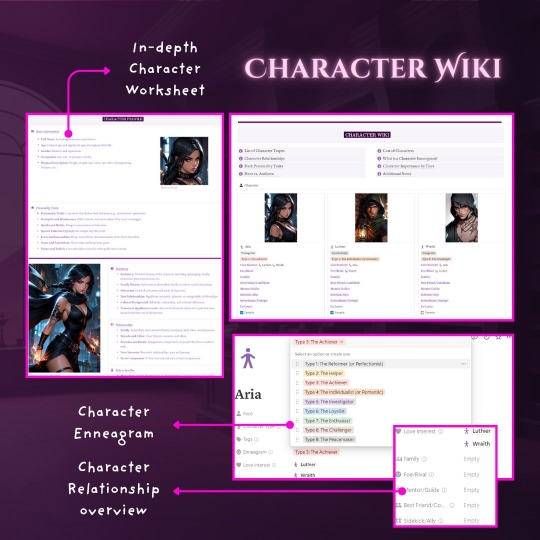
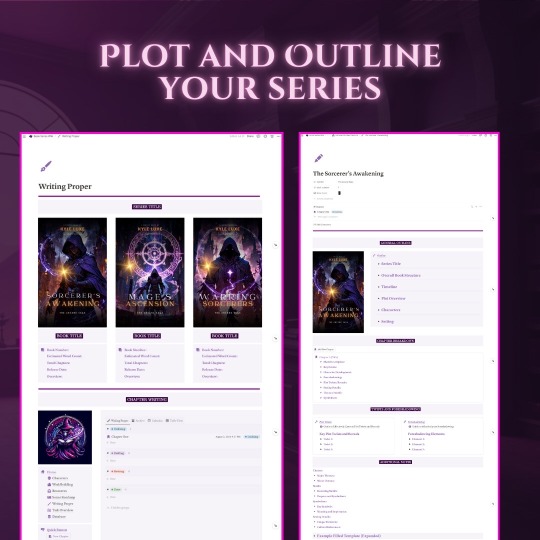

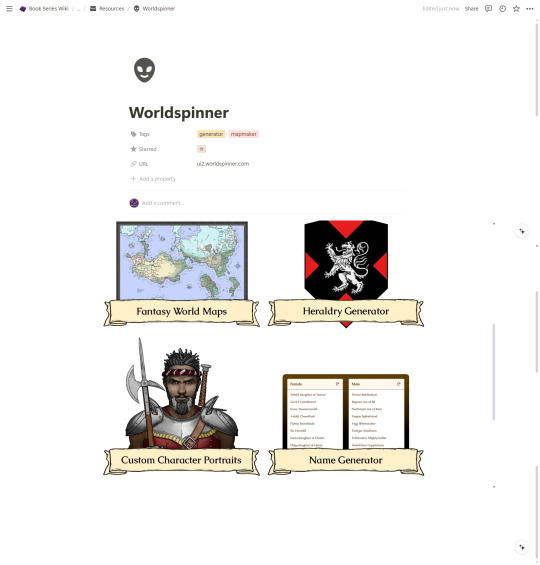
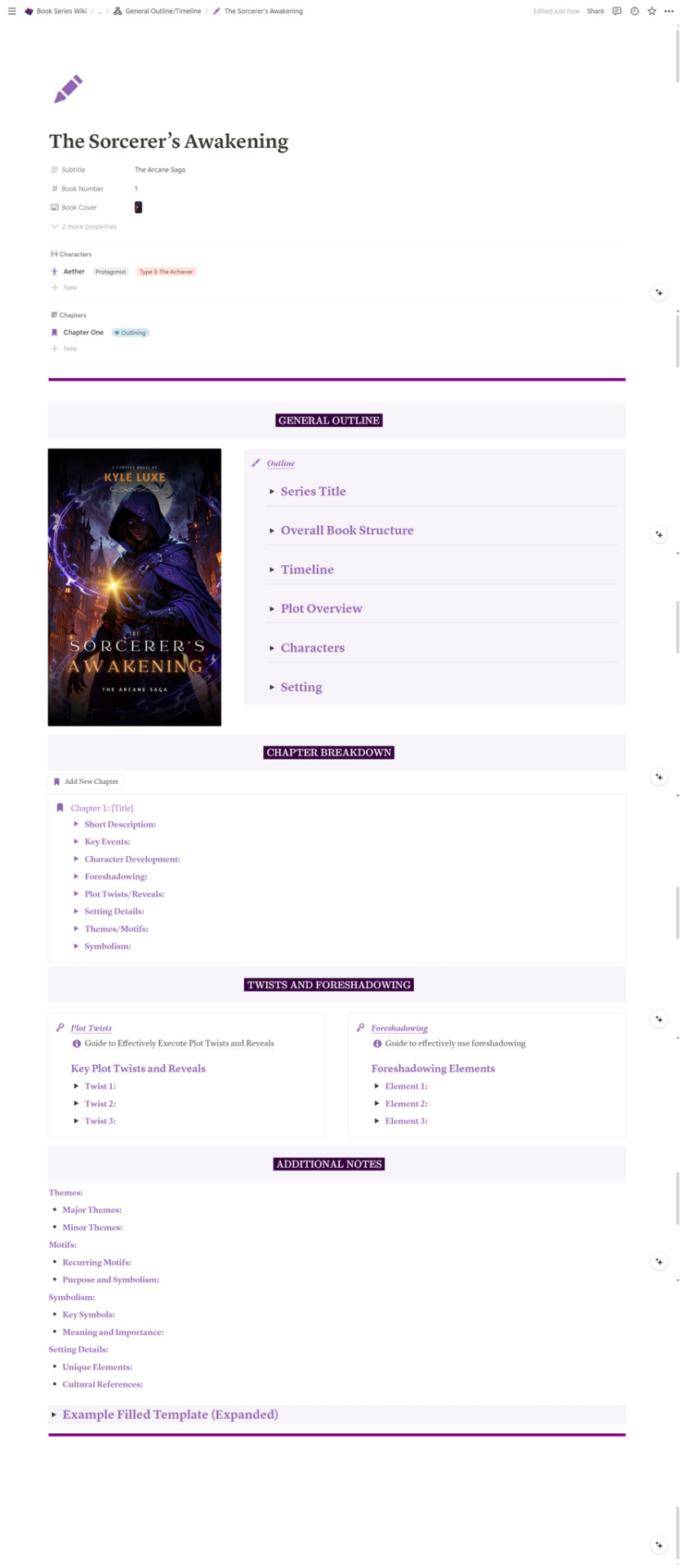

9K notes
·
View notes
